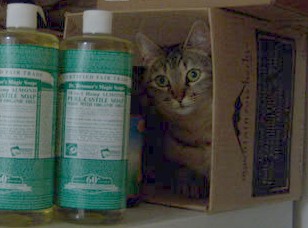lper100km wrote:It is common, may even be mandatory, in the UK to have a direct gas or electric heater on the shower/bathtub. Heating is instant and the energy is applied only to the water that is used. The flow may be reduced somewhat, but that is also part of an overall conservation approach.
Direct heaters are also available for sink units - the kitchen is an obvious choice. I have seen them used on washroom sinks also. Unless the house heating system uses water filled radiators, there is no need for a 40g tank kept perpetually at 175F for a few minutes use daily.
On demand heating is becoming increasingly common in the UK.
(Be careful with the terms direct and indirect - they don't mean what you think. Direct means the hot water is heated directly - e.g. by an electric heater. Indirect means that there is a seperate water circuit. E.g. gas heats water in a sealed circuit, which then heats water in a tank).
On demand heating is naturally direct - but direct heating doesn't necessarily eliminate storage.
Traditionally, in the UK hot water has been low pressure (fed by gravity from an attic tank), and as a result flow rates have been poor.
New government building guidelines, both in terms of providing a minimum quality of infrastructure and energy efficnecy, have combined to make direct heating desirable. Good performance (flow rate), no storage to run out, and reduced energy usage.
However, storage is acceptable - but must meet minimum standards. Minimum of 2.5 inches of foam insulation on any tanks, and on gas heated tanks a minimum surface area for the heat exchanger (faster recharging means a smaller tank with smaller standing losses is acceptable).
In flats, and other high density housing, the use of gas is discouraged (for safety)- and all electric heating is usually used. Power companies strongly encourage the use of an off-peak tarrif for heating (electricity used overnight is supplied at a discount - typically 60-80%). The use of on-demand water heating in such a setup is undesirable, as most usage is during the day and does not take advantage of the deep discounts available overnight. Instead direct storage is always installed - often with very large capacity tanks (200-250 litres) so that high-priced daytime electricity is not used for heating. However, the legal minimum standard for insulation on such tanks is correspondingly more strict.
There's also no requirement for a wet central heating system to have a hot water tank. In the UK, the installation of a combination boiler (combi) is common. This combines a direct on-demand gas hot water heater and a sealed heating circuit in a single unit. No need for hot water storgae but the convenience and performance of conventional gas heating. Again, minimum legal standards for gas boilers now mean that such boilers must be of the 'condensing' type, which are considerably more efficient.
That said, there's no need for a hot water tank to be kept at 175F - that's wasteful, and a serious scald risk. (*) If you have a condensing heater, then such a high water temperature will cause the boiler to operate outside of teh condensing range, drastically reducing efficiency.
The hot water tank should be kept at the lowest safe temperature which is 135 F (55 C), although some health agencies recommend 140 F (60 C). Below this temperature there is a risk of bacterial contamination of the hot tank - this is even more important, if the local water quality isn't excellent.
(*) there is one exception to this, and this is when indirect electrical storage heating is used. This is rarely used, because it is more expensive - but provides high-flow, high pressure water without the explosion risks of a conventional mains-pressure water heater. So, although more expensive, unlike conventional high-pressure hot water stores, which legally require servicing and recertifiying annually, these indirect stores require no regular maintenance. The water in the tank is purely a storage medium, and is pumped through a heat exchanger to heat potable water. High temperatures are desirable as they reduce the bulk of the storage tank (but corresponding improvements in insulation are required). Because potable water is heated on-demand, the delivered water temperature is controllable, and there is no risk of bacterial contamination. These storage systems are also potentially useful when added to a conventional heating system - by providing a large degree of thermal inertia and a thermal store - radiators can be instantly brought up to temperature when returning home from work, and operation of the boiler in short bursts (which is inefficient and causes wear and tear) is avoided.





